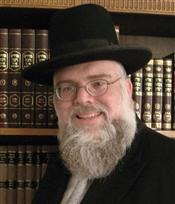I recalled how a number of years ago, when our community was rocked with the sudden petirah of a young neshamah, multitudes of people gathered at the home of the aveilim, as if on cue, to lend their comfort and areas of expertise to expedite a kevurah in Eretz Yisroel. Many arrangements, including securing emergency passports, transportation, food for the travelers, planning a local levaya, securing police cooperation and myriad other details, needed to be made in a very short time. Not to be overlooked was the emotional wellbeing of a family that needed so much nechamah and chizuk. A look around the room made for an incredible sight. People who otherwise barely spoke to or even knew each other were working together like a veteran team, everyone adding their contribution. Others who may not have even been on the best of terms with other members of this newly-created fraternity dived in to help and offer input. It was an incredible ma’amad to behold.
Sadly, the scenario repeated itself in a Michigan hospital during a more recent tragedy. To the amazement of hospital staff, scores of friends and askanim swarmed to Kalamazoo to offer their chizuk, their expertise, and anything else that needed to be done, even late on an Erev Shabbos. They had never seen anything like it and expressed their incredulity of a community so close and so caring. The kiddush Hashem was not lost on anybody.
And then it was Shabbos. What does one say in shul with the heavy cloud of aveilus hanging over everyone’s heart? Aside from invoking Chazal’s message (Nedarim 81) that even the nevi’im could not figure out “al meh avda ha’aretz,” why Yerushalayim was lost to us, and certainly mere mortals like ourselves are at a loss to understand darchei Hashem, I felt that we needed to take a positive lesson from all the tragedy.
The Yerushalmi (Sotah 8:5) teaches us, “If you are coming to hate, remember that you are an ‘oheiv’ (a lover), ve’ain oheiv sonei – and a lover does not hate.” We are a nation of ohavim, deeply rooted and experienced as prescribed by the Torah’s commandment to love Hashem and our friends. Sadly, the challenges of life do not allow these feelings of love to surface often enough. Only when all of our defenses are down and we are left naked with the stark reality of what we truly are do the feelings of love manifest themselves. It is a window into the essence of our being.
Yet another Yerushalmi, at the beginning of Maseches Yoma (1:1), sheds a little light on the phenomenon known to us as sinas chinom, the cause of our two millennia-long suffering in golus. Chazal state, “Despite their great toil in Torah and punctilious fulfillment of mitzvos and acts of gemillas chessed, the second Bais Hamikdosh was destroyed because they coveted their money and hated one another. Are Chazal merely “piling on,” or is this an insight into the underlying cause for sinas chinom?
I would humbly suggest that perhaps our hearts contain an unfathomable amount of potential for love. But that love needs an address. Is it to be directed to myself and my possessions (which is also self-love), or is it directed to my friend and neighbor?
While the potential amount of love is unlimited, when self-love takes center stage, we no longer have an infinite capacity of love to bestow on others. Self-love is like silver coating on a piece of glass. The uncoated glass is a window that allows us to see others. However, once coated with silver, the glass becomes a mirror and I can only see myself. The more I indulge in self-love, the less I have left for others. The more I care for my own self, the less capacity I have to unconditionally love another, giving us the root cause of the problem as well as the solution.
We are taught, “Ve’ahavta lereiacha kamocha.” Being human, we do care for ourselves. However, rather than making ourselves the focus of our love, we use that love to develop the empathy and caring for others to reach the level of love for others required of us by the Torah. In the Torah mindset, my love and desire of life for others should be exactly the same as for myself. The Gemara requires a special posuk of “vechai achicha imach – chayecha kodmin” to teach us that if two people are walking in the desert and dying of thirst, the one who possesses a bottle of water should drink it, even though his friend will perish. This can only be because we are in fact commanded to love others exactly the same as ourselves, so a special posuk is required to teach us what to do in this unique situation. In fact, the opinion of Ben Peturah in this very Gemara is that the water should be shared and neither one should see the demise of his friend.
Although we do not relish or ask for these opportunities, we need to learn from them how bound we really are to each other. We would do well to resolve to be a little more tolerant of someone else’s idiosyncrasies or adopt a friend who needs more love and care than I have shown until now. A concrete, definite kabbolah, not some generic resolution to like everyone more than before.
We are lovers. Let us love.
Rabbi Plotnik is the rov of Congregation Bais Tefila in Chicago, Illinois.








